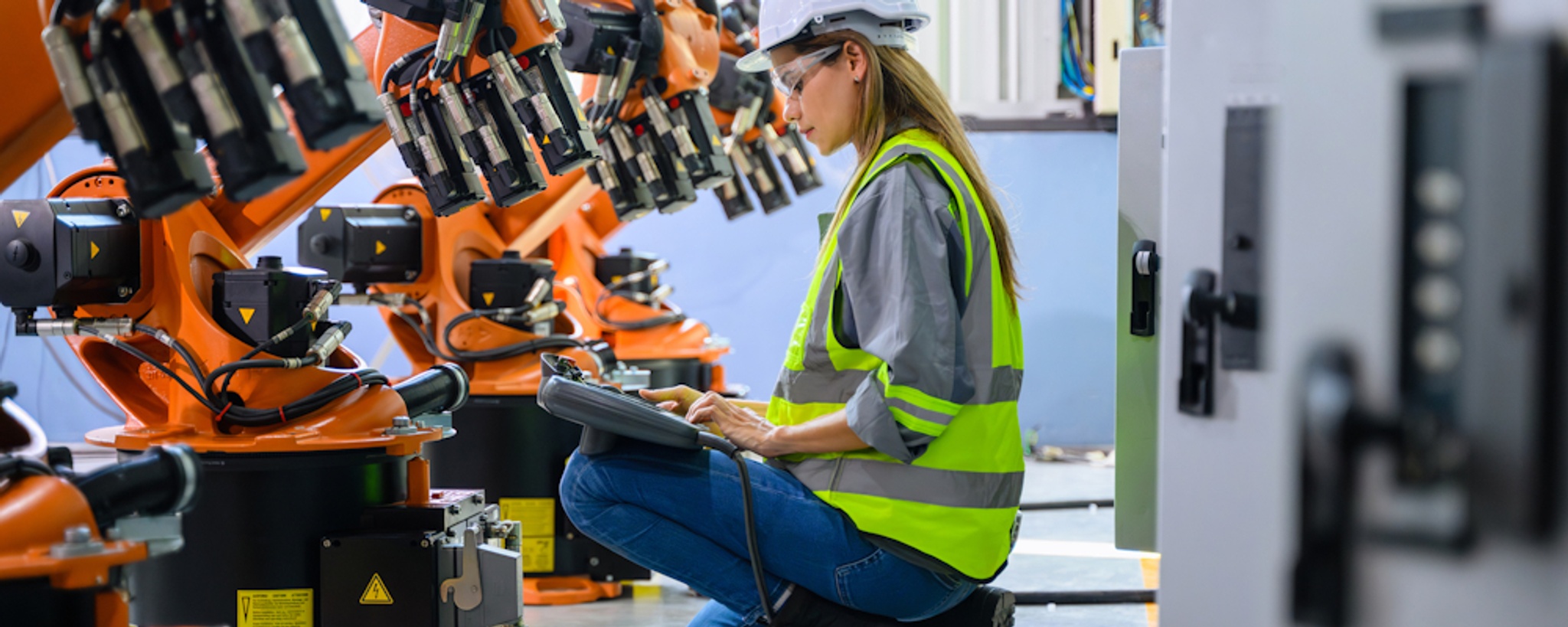Skills and Future of Work
Navigate forward to interact with the calendar and select a date. Press the question mark key to get the keyboard shortcuts for changing dates.
Navigate backward to interact with the calendar and select a date. Press the question mark key to get the keyboard shortcuts for changing dates.
As nations engage in a race for global advantage in innovation, ITIF champions a new policy paradigm that ensures businesses and national economies can compete successfully by spurring public and private investment in foundational areas such as research, skills, and 21st century infrastructure. Our research on skills and the future of work covers skill-building through science, technology, engineering, and math education; use of technology in primary and secondary school; higher education reform; innovations such as massive open online courses; and incumbent worker-training policies.

Vice President, Global Innovation Policy, and Director, Center for Life Sciences Innovation
Information Technology and Innovation Foundation
Read BioMore Publications and Events
February 20, 2026|Blogs
We Don’t Want Our Companies to Be Jobs Programs
We should want companies to shed workers they no longer need. Productivity gains flow to lower prices, higher wages, and long-term growth. Don’t slow innovation—accelerate it.
February 19, 2026|Blogs
Hyundai Motor’s Humanoid Robot Debate and Korea’s Real AI Challenge
While the Hyundai Motor case now sits at the center of Korea’s AI jobs debate, the evidence suggests that the nation’s more immediate constraints are weak productivity growth and uneven labor-market adjustment—not large-scale technological displacement. How Korea responds will shape its competitiveness in a high-cost, aging manufacturing economy under intensifying global competition.
January 12, 2026|Blogs
Fact of the Week: Construction Industry Facing a 439,000-Worker Shortage Driven by the Growth of Data Centers
As of November 2025, with over 400 data centers currently under development, the construction industry is facing a shortage of roughly 439,000 workers.
January 5, 2026|Blogs
Fact of the Week: Commuting Areas Far From AI Hotspots Experienced 17 Percent Lower Growth in AI Jobs
A report finds that firms that are 125 miles from the closest AI hotspot, defined as an area with over 1000 AI publications or patents, experienced 17 percent lower AI job growth between 2007 and 2019.
December 19, 2025|Blogs
Venture Capital and Advanced Technologies Drive US Employment
New research from the U.S. Census Bureau shows that venture capital investment and advanced technology adoption are closely linked to higher employment and productivity. VC-backed, technology-adopting firms account for a disproportionately large share of U.S. jobs, even as venture investment has declined since 2021.
December 18, 2025|Blogs
AI’s Job Impact: Gains Outpace Losses
AI isn’t destroying jobs; it’s creating them. At least in 2024, the surge in AI activity and data center construction generated more jobs than AI displaced.
December 18, 2025|Blogs
Misunderstanding the British Industrial Revolution Is Reinforcing Technology Pessimism About AI
Detractors of capitalism argue that it took over fifty years for the British Industrial Revolution’s benefits to reach average workers. That narrative is at best contested and, at worst, wrong.
December 15, 2025|Blogs
Will AI Be the Next Growth Engine? Let’s Hope So
If we’re lucky, AI will restore the productivity growth that has eluded us for 15 years—not through dystopian transformation, but through steady, incremental improvements across the economy.
November 20, 2025|Blogs
Worker-Oriented Republicanism Is Not an America First Agenda
A pro-worker agenda isn’t the same as a “national greatness” agenda. Workers are an interest group like any other: sometimes aligned with what’s best for the American Republic, and sometimes not.
November 17, 2025|Blogs
The AI-Related Job Impacts Clarity Act Will Only Create Confusion
The proposed AI-Related Job Impacts Clarity Act would create misleading, unhelpful data and unfairly stigmatize AI adoption, diverting attention from more effective ways to measure technology’s real impacts and support workers.




